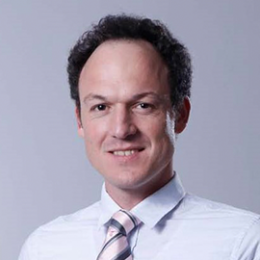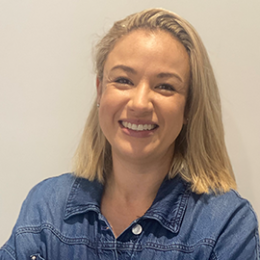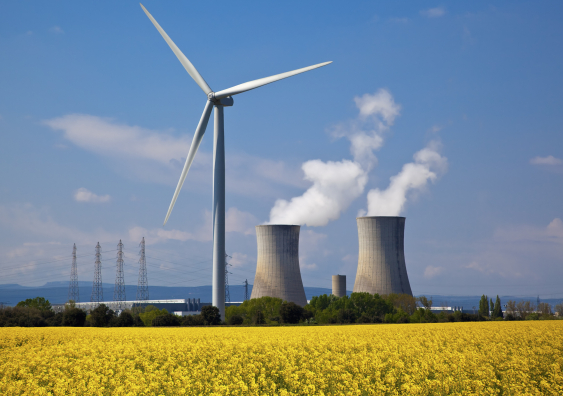The debate regarding a potential change to Australian legislation that prohibits the production of nuclear energy for power generation needs to be reframed, according to an experienced UNSW Sydney nuclear engineer.
Dr Edward Obbard, opens in a new window, speaking on UNSW Sydney’s ‘Engineering the Future’ podcast series, opens in a new window, says that a continued ban will appear increasingly odd given the fact Australia has committed to building nuclear-powered submarines as part of the AUKUS agreement.
But he admits the way nuclear technology is discussed in relation to military defence is massively different to the way it is portrayed in relation to generating domestic power which would be environmentally friendly.
Read more: World-first fusion device to be built at UNSW Sydney, opens in a new window
That’s despite nuclear power being touted as a way for Australia to achieve its goal of reducing greenhouse gas emissions to 43 per cent below 2005 levels by 2030 – and achieve net zero by 2050 as part of the Paris Agreement.
“If you frame the nuclear question to people as a question of strength and security and resilience, as with AUKUS, then nuclear technology makes perfect sense,” Dr Obbard says.

Dr Edward Obbard leads the growing and diverse nuclear engineering program at UNSW Sydney. Image from UNSW
“Of course I would drive my submarine around on nuclear energy because it's the framing. I'm trying to be strong and resilient.
“But when I switch the framing to how we currently frame the energy debate, I'm looking to be ethical and virtuous and green and low impact. And within that framework nuclear just doesn't really chime with our preconceived ideas.
“The two frames are pretty stable. (So) I think that framing would have to change for us to be able to say we’ll be using nuclear energy (in Australia) in 20 years’ time.”
Dr Obbard, a nuclear materials engineer in the School of Mechanical and Manufacturing Engineering, opens in a new window at UNSW, says the AUKUS submarine deal will ensure there is a cohort of fully-trained nuclear engineers that could also be utilised in potential domestic nuclear power plants.
“It is strange to prohibit the civilian benefits of something, yet embrace the military - on many sort of levels,” he says.
“We are going to have a nuclear workforce in 20 years. And when you have a nuclear workforce and when you have that level of heightened understanding and appreciation of the technology throughout government and throughout society, you then have the option to use nuclear technology for its civilian purposes.
“If the global warming and the decarbonisation, and all of these things that we have to do turn out to be true - and indeed as important as we think they are - why would we then not use that technology when we have all the pieces in place to do so?
“I have to add, it's a big step. It's a decision to make. I'm not saying that we have to, or that we must. But I guess my point is founded on my belief that in 20 years’ time it will be feasible and possible and probably still just as beneficial as it seems to me now.”
Joining Dr Obbard on the ‘Engineering the Future of Nuclear’ podcast episode was Lieutenant Colonel Jasmin Diab, a combat engineer officer in the Australian army, president of Women in Nuclear Australia and also a member of the Nuclear Safety Committee of the Australian Radiation Protection and Nuclear Safety Agency.
She agrees that the AUKUS agreement will potentially change the conversation about nuclear power as a whole in Australia.

Lieutenant Colonel Jasmin Diab is President of Women in Nuclear Australia, the Oceania representative on the Women in Nuclear Global executive, and a member of the ARPANSA Nuclear Safety Committee. Image from Jasmin Diab
“The decision to have nuclear powered submarines will force Australia to invest in a nuclear industry. And I think that alone will allow the Australian public to have a better understanding of what nuclear technology means,” LTCOL Diab says.
“At the moment, you have your two extreme camps, people that are very pro-nuclear because they're probably scientists and engineers or policy makers that are comfortable with the technology because they've either worked in it or studied in it, or you've got the extreme anti-nuclear who really thrive off emotive debate.
“There's a big chunk of Australians that sit in the middle that just don't understand enough to make an informed decision. The fact that we are going to have to invest in an industry means more Australians will be introduced to nuclear science.”
Both Dr Obbard and LTCOL Diab say experts within the nuclear industry need to do a better job of promoting nuclear energy as a potentially important component of the transition away from fossil fuels.
“I think historically the nuclear industry has been really bad at how we promote ourselves and what our technology is. The messaging the nuclear community pushed out there was very technical and didn't allow for the good environmental impacts of nuclear energy to come through,” LTCOL Diab says.
“When you look at the entirety of environmental impact and low carbon technologies, we need to talk about nuclear’s benefits as well. We haven't framed it to be able to look at nuclear as a green technology.
“The climate change debate is something that gets people quite passionate and will force us to change the way we look at different technologies.”
* Dr Edward Obbard and Lieutenant Colonel Jasmin Diab were in conversation as part of the Engineering the Future Podcast series, opens in a new window.




